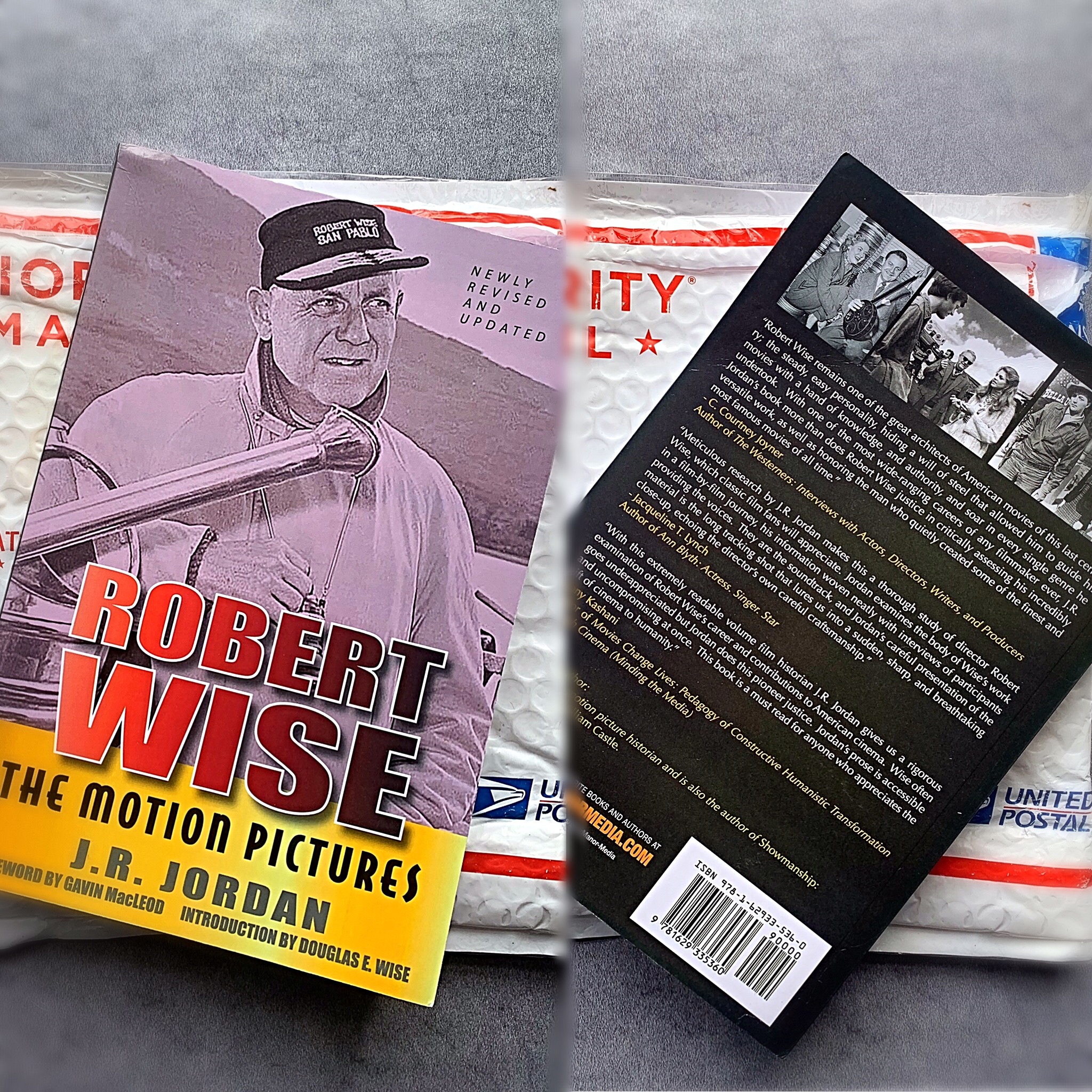Important Note from 5D – 27th July 2020
This article first appeared on the 30th June 2020 with the book dedicated to the author’s father. A couple of days ago Joe contacted me to say that sadly last week his father suddenly passed away and we agreed wholeheartedly that a fitting tribute to him would be to add a supplement to this piece.
.
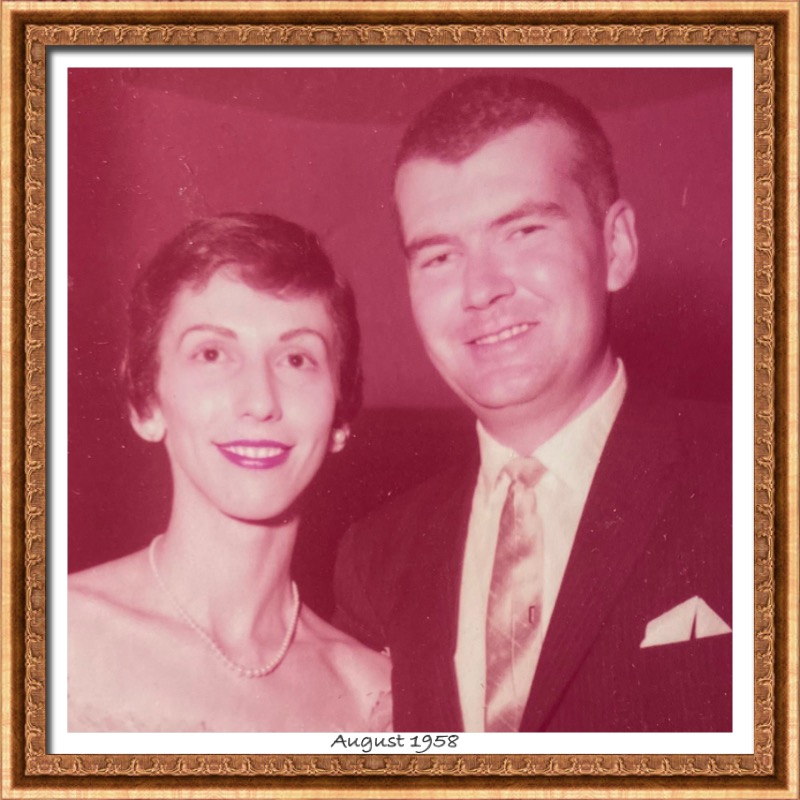
Addendum – The book is dedicated to the author’s father. Joseph C. Jordan Jr. suddenly passed a short time following the publication of this article. In Robert Wise: The Motion Pictures the author wrote, “Those I interviewed for this book generally described Robert Wise as noble, patient, validating, and a class act. Such words, in short, apply to Dad.”
Mr. Jordan’s wife, Rosetta, preceded him in death by 37 years (see photo). He missed her terribly and never remarried. The author was fortunately afforded the opportunity to be at his father’s bedside on the day of the passing. Prior to the moment of death, the author faced his father and said, “This is a very special day. You’re going to be with Mom again.” Mr. Jordan’s face lit up, as his excitement was clearly apparent.
.
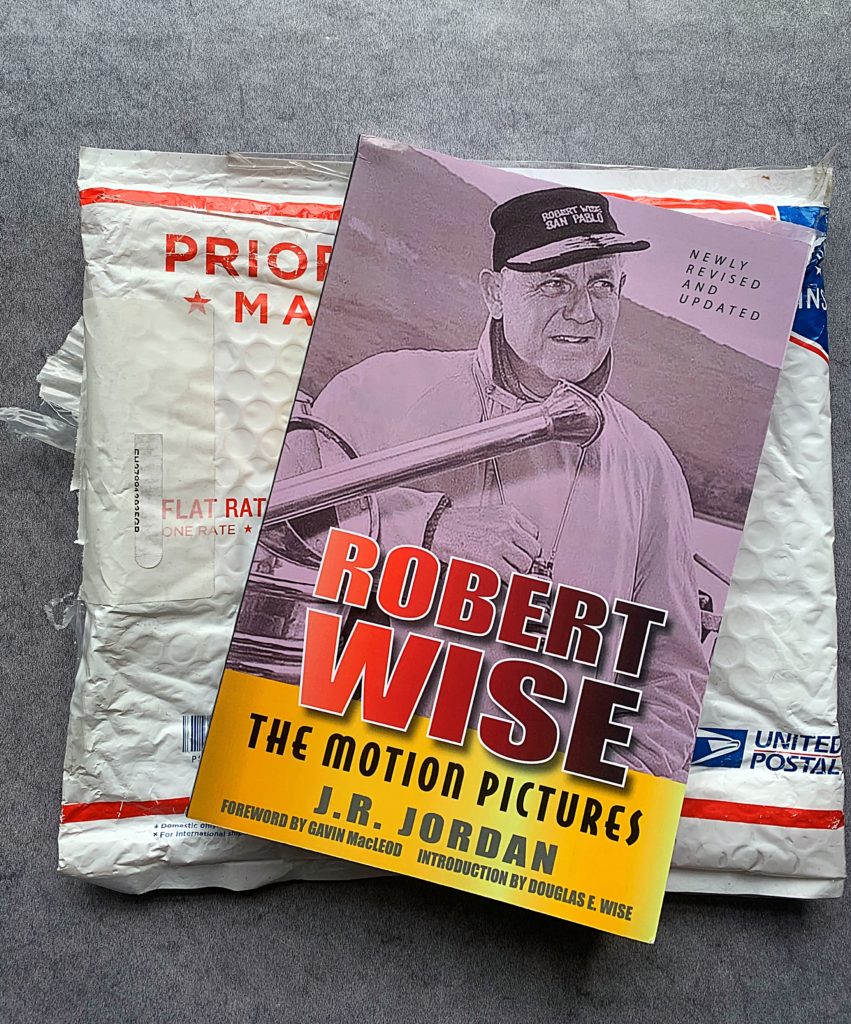
I’m in the rather nice situation here at 5DHQ of receiving a number of regular requests – no, not those pesky little legal requests to ‘Appear at her Majesty’s pleasure’ at some local (and quite frankly something of a kangaroo) court or another. Thankfully those requests along with the seemingly never ending requests for money owed have now ceased – mostly thanks to a hasty change of name, disguise, location and off-shore bank account.
No, I’m talking about the requests for reviews regarding all sorts of creative endeavours that happily come my way. Sadly due to time constraints (in other words I’m a lazy arsed so-and-so) I can’t do as many as I’d like, so it has to be something particularly special to catch my eye.
As it happens, just a week or two ago something special did indeed perk my interest when I received an email from a certain J.R Jordan asking whether I’d be interested in looking at the revised edition of his book about director Robert Wise.
The reason for my interest was twofold; Firstly his body of work contains a number of movies that would effortlessly find their way into my varied set of ‘best of’ lists; The Body Snatcher (1945), The Desert Rats (1953), The Day The Earth Stood Still (1951), Run Silent Run Deep (1958), The Haunting (1963), The Sand Pebbles (1966), The Andromeda Strain (1971) & Star Trek: The Motion Picture (1979). I can say with a fair degree of confidence that that’s a distinctly robust body of work – and it doesn’t include a plethora of award winning titles and cinematic behemoths (Star!, The Sound of Music, West Side Story) – which may not exactly be my own cup of cinematic tea but are unarguably movie classics, of that there is no doubt.
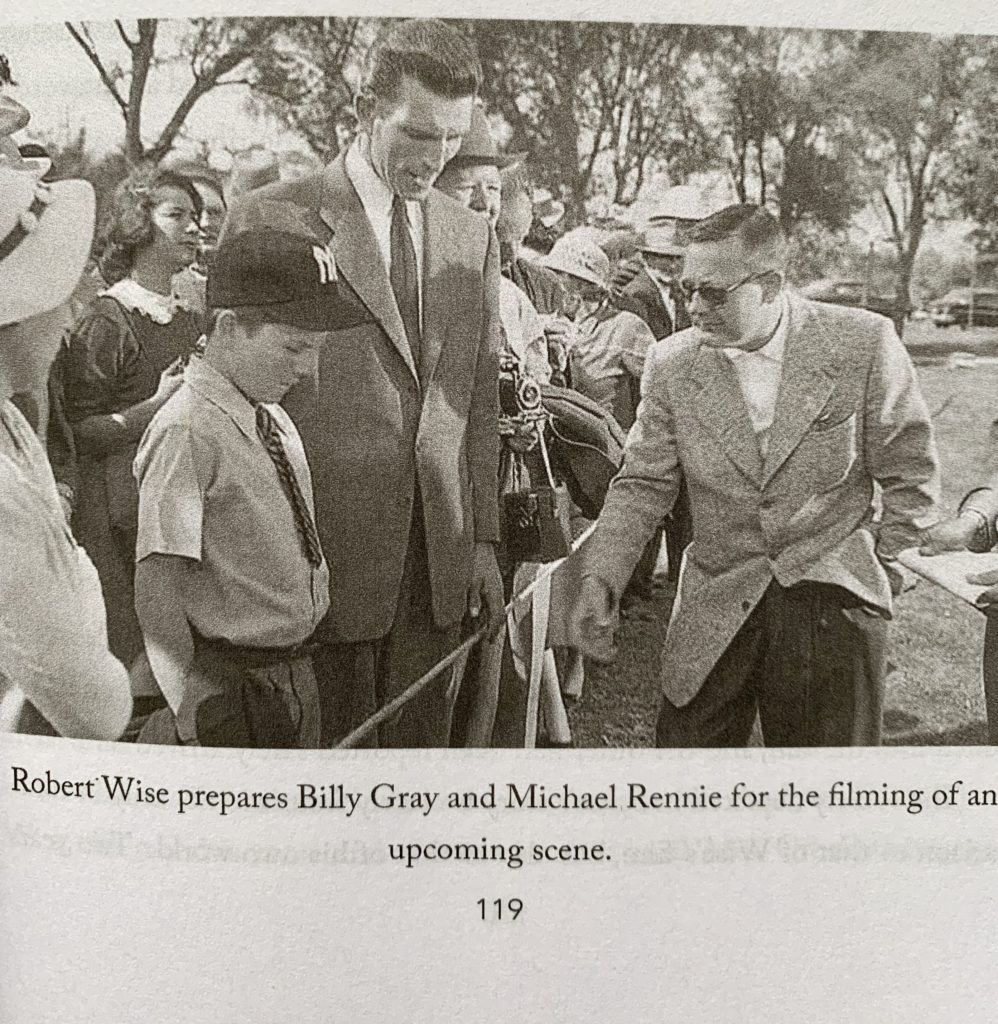
The second reason for my interest in the book is closely related to the first, because it has always fascinated me why someone such as Robert Wise is without doubt much less acclaimed as a directing great than many of his contemporaries. Wells, Hitchcock, Wilder et al have public identification and legend of their own and yet Wise with such a diversity and longevity to his output would never be the first name that trips of the tongue from people listing their top 10 directors of all time. Perhaps that diversity of output is part of the issue, or possibly the fact that he chose to let the script rather than his directing style impact on the end product. There may also be the controversy at the beginning of his career when he was accused of utter betrayal by Orson Wells for editing The Magnificant Ambersons into something that Wells despised.
Anyhoo, let us return to the point of this article – Joe Jordan’s book, which has been released in its second edition. The book itself contains a wealth of research and well over twenty interviews to provide a backdrop to the career of Robert Wise. However before I talk specifically about it, let me send your way a short interview I held with the author himself.
.
THE Q&A SESSION
.
Q) There are a number of ‘classic’ directors that could have chosen, why specifically Robert Wise?
I remain fascinated with Mr. Wise’s entire filmography. He directed films of so many different genres.
Q) Which of his films resonates with you the most?
The Sand Pebbles – it is one of my father’s favorite films and became embedded in my childhood.
Q) Do you think that despite his catalogue of work, he isn’t as publicly lauded as his contemporaries? If so, why?
Absolutely. Robert Wise doesn’t receive as much attention as his contemporaries because he is known as the anti-auteur. The script essentially set the style. Mr. Wise has instead been viewed as a craftsman.
Q) What specific difficulties did you encounter when researching the book?
As you can imagine, multiple viewings of each film were required in order to better grasp the direction, script, etc. For many of Mr. Wise’s pictures, I gladly welcomed the opportunity to watch them over and over, as I’d discover something new upon each viewing.
Q) How easy was it to get people to take part in research and interviews, etc.?
With the exception of maybe one or two individuals, everybody was accommodating and gracious. Their avid interest in the subject made my job a lot easier. I interviewed over twenty individuals for the book.
Q) What is included in this revised edition?
The revised edition includes additional interviews and photographs.
Q) Are there plans for similar books about other filmmakers?
I am currently at work on a book pertaining to the films and scripts of Billy Wilder. It is scheduled for release in 2021.
.
Robert Wise: The Motion Pictures. A book by J.R.Jordan.
The book begins with a lovely forward by the wonderful American character actor Gavin MacLeod, followed by a nicely heartfelt introduction from the director’s nephew, Douglas E. Wise. The tome is then set neatly into five main sections; Wise’s film contribution for RKO Radio Pictures, the 1950’s, some 60’s blockbusters, his 1970’s output and finally the twilight of his career.
The layout works perfectly for someone like me in terms of the eclectic output of Robert Wise – the first thing I did on receiving the book was immediately search out the specific films I mentioned earlier. In all honesty, at well over 450 pages this was never a book that I would attempt to read in one go. Rather this is perfect for dipping into whenever the urge hits to pick out one’s favourite examples of Wise’s work. So that’s what I did, going practically straight to the end of the book to read what insights were on offer about one of the most anticipated Sci-fi events of the 1970’s – the return of the original Star Trek cast for Star Trek: The Motion picture.
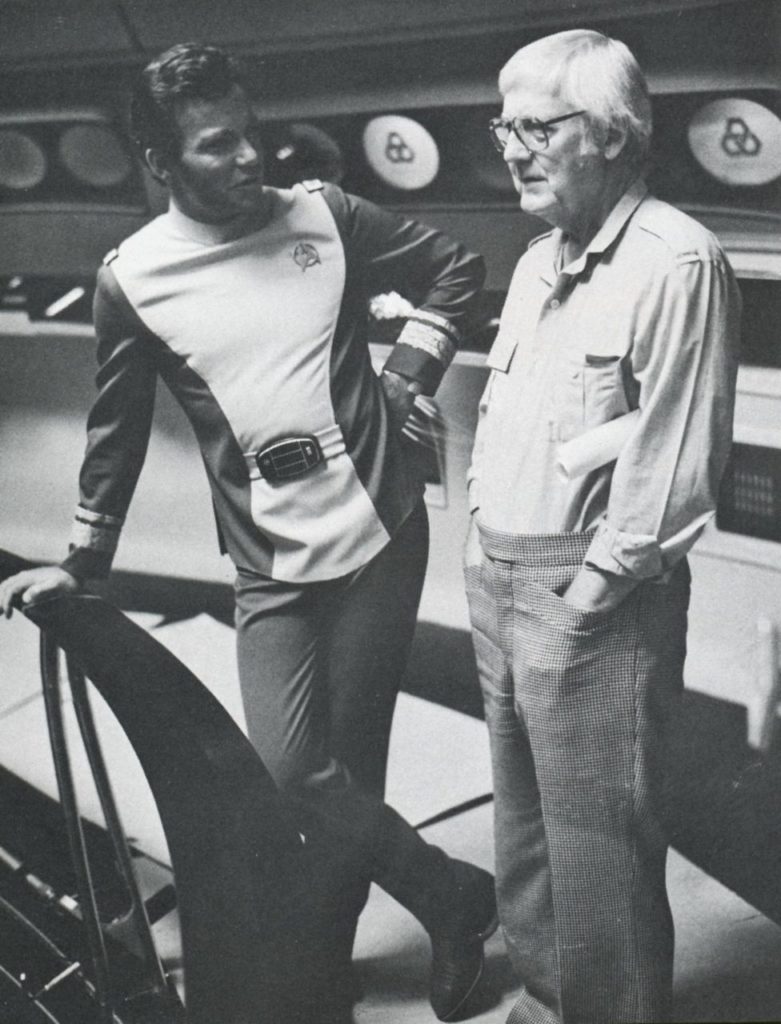
In my opinion, if you were ever to look up the definition of “Good, but something of a missed opportunity” then this film would be it. Thanks to the success of Star Wars and others which gave the ailing genre a major shot in the arm, the long-awaited return of Kirk et al captured the imagination of both fans and public alike. There is no doubt that this was a BIG event!
However, once released it became clear to many fans that while the film contained the familiar cast and structure the end product while reasonable good was, well, in truth a little boring. The interview contained in the book with screenwriter Alan Dean Foster provides a great deal of clarity behind the mixed final reception of the film. He recounts the lack of clear decision making from studio bosses and producer Gene Roddenberry, who from the start couldn’t decide fully whether to go with a TV series, a feature film or something in between. Foster’s insight in to the plethora of changes to scripts both before AND during production, the cast egos and Wise’s self-admitted lack of familiarity with the Star Trek universe is genuinely fascinating.
The book has a nice balance throughout of focusing not just on the big movie output from Wise, but also his lesser-known fare. The approach from Jordan, regardless of the film is constant throughout with a delightful combination of detailed synopsis of the particular movie enriched with interesting anecdotes from cast and production members. As with any book of this type, the personal recollections of those involved often add a rich dimension to a movie’s history in offering sometimes deeply personal insights.
It becomes clear as one readS this book that my burning question of why Robert Wise is far less acclaimed as a directing great than many of his contemporaries. Jordan’s immaculate level of research and narrative makes it abundantly clear that Wise was never interested in being an ‘Auteur’ and never desired to be lauded as such. After reading this book it is clear that he simply didn’t want to trap himself be genre or style, but rather he simply delighted in the pure craft of filmmaking
If I was to be critical I felt occasionally that the synopsis for each film was occasionally over done once or twice at the expense of more detailed insight to the movie’s background. I would also have loved to have read about the controversy around Wise’s involvement in editing The Magnificent Ambersons, alas this episode is barely touched upon here.
However, what cannot be denied is that on the whole this is a fabulous example of a writer showcasing his passion for his chosen subject. He not only succeeds in providing previously unknown insight and knowledge about the director that can only serve to enhance Robert Wise’s contribution to movie history.
The final question really is; Does J. R. Jordan do justice to the career of Robert Wise? The answer is yes……and much more.
You can find Robert Wise: The Motion Pictures (Revised Edition) RIGHT HERE.


